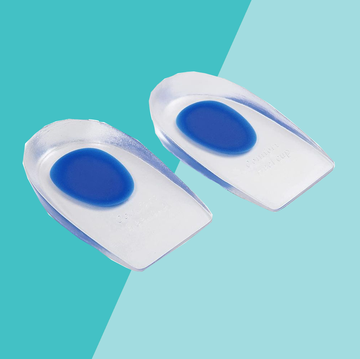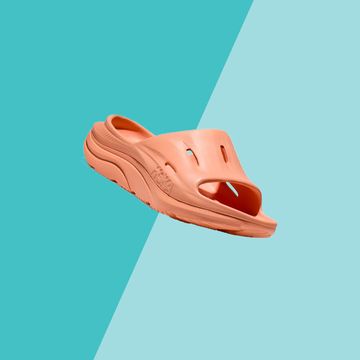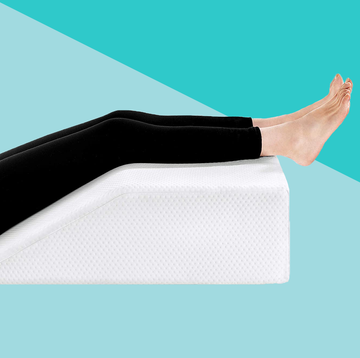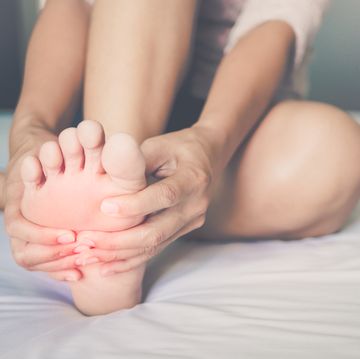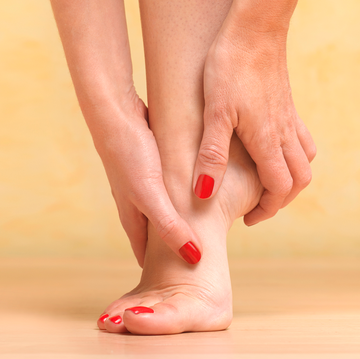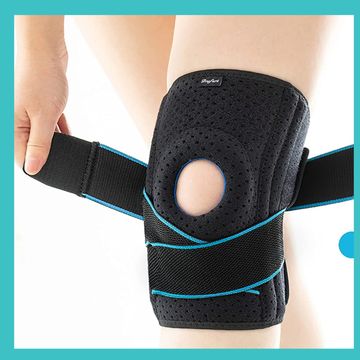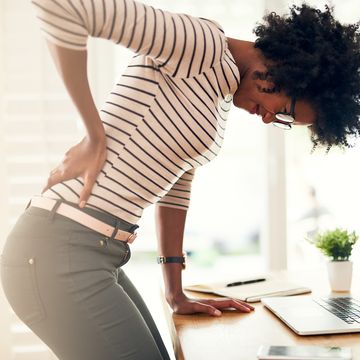Theory #1: Weather can affect pain.
 Brian A Jackson/Shutterstock
Brian A Jackson/ShutterstockThe facts: If your joint pain gets worse when it's cold or raining, it's not your imagination. Although studies have shown mixed results, changes in barometric pressure can cause some people—especially people with arthritis—to have increased pain in their joints. Experts think this is because the change in barometric pressure affects joint pressure. When the weather heats up, or a "high pressure system" moves in, the increase in barometric pressure usually brings relief.
Advertisement - Continue Reading Below
Theory #2: Rest is good for back pain.
 Monkey Business Images/Shutterstock
Monkey Business Images/ShutterstockAdvertisement - Continue Reading Below
Theory #3: Losing weight may help chronic pain.
 Billion Photos/Shutterstock
Billion Photos/ShutterstockThe facts: If you're overweight, less weight on your body means less pressure—and less pain—on your joints and back. "Dropping a few extra pounds can really help improve joint pain in the knees and hips," says Patience White, MD, MA, vice president of public health policy at the Arthritis Foundation. "Even 10 pounds can make a huge difference." (Need help losing weight? These small changes take off big pounds.)
Advertisement - Continue Reading Below
Theory #4: The pain is in your head if there's no medical cause.
 Chepko Danil Vitalevich/Shutterstock
Chepko Danil Vitalevich/ShutterstockThe facts: Just because experts can't find the exact source of someone's pain doesn't mean they don't feel it! Pain is your brain’s interpretation of a neurological event called "nociception." And due to the complexity of the human body, it's not possible to determine all of the possible causes of nociception. Fibromyalgia and chronic fatigue syndrome are just two of many hard-to-pin-down conditions that may cause persistent pain.
MORE: The 10 Most Painful Conditions
Advertisement - Continue Reading Below
Theory #5: You don't need to worry about minor pain.
 Image Point Fr/Shutterstock
Image Point Fr/ShutterstockThe facts: Many people believe pain is just something you have to live with, yet pain should never be ignored. Even if your pain gets better with OTC medications, see your doctor if the pain lasts more than a week or two, becomes worse over time, or if it interferes with your daily activities. Think of the pain as one of the red lights on the dashboard of your car. The light is there to tell you something is wrong.
Advertisement - Continue Reading Below
Theory #6: Pain is a natural part of aging.
 Min Chiu/Shutterstock
Min Chiu/ShutterstockThe facts: Like gray hair and wrinkles, a few aches and pains are a part of nearly everyone's life. But chronic pain doesn't have to be. Most people should be able to lead relatively pain-free lives as they age. If you're bothered by chronic pain, see your doctor. A chiropractor or functional movement specialist may also be able to help you find relief.
MORE: 60-Second Fix For A Stiff Neck
Advertisement - Continue Reading Below
Theory #7: You'll get addicted to pain medicine.
 Science Photo/Shutterstock
Science Photo/ShutterstockThe facts: When taken as directed, prescription pain medications are typically safe and often godsends for those in agony. But your body can become physically dependent on pain medication. Although this doesn't mean you're addicted, you may have withdrawal symptoms if you stop the drug abruptly. It's an expected response when a prescription pain drug is used for more than a few days. It's important to follow your doctor's advice to a T when it comes to taking pain meds.
Advertisement - Continue Reading Below
Advertisement - Continue Reading Below
Advertisement - Continue Reading Below

